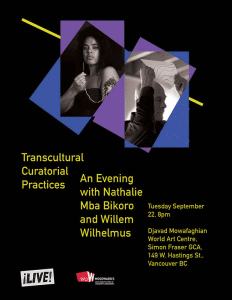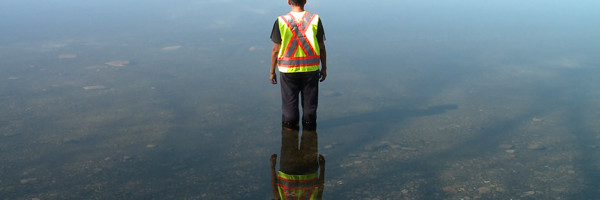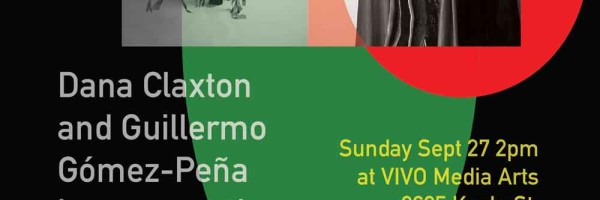Nathalie Mba Bikoro (LAB Encounters, Squat Museum) and Willem Wilhelmus (Mother’s Tongue Festival) will be discussing their unique curatorial practices on Tuesday Sept 22 8pm, at Djavad Mowafaghian World Art Centre, Simon Fraser GCA, 149 W. Hastings St., Vancouver BC
Mother’s Tongue is a project to investigate the effect of not speaking one’s mother tongue. It focuses especially and specifically on experimental live artists living and working in a culture other than their own. Is there for transcultural artists any correlation between the lack of using their mother tongue and their creative activity and artistic quality? We want to put this question to a number of transcultural artists from Finland and abroad and invite them to present works inspired by the festival’s theme “A Lack of Mother Tongue”. During the making of the festival, besides documenting their live art proposals, we want to collect their subjective stories and opinions on how the lack of native tongue has influenced their artistic process. The question will also be submitted to a group of researchers in the field of social science, to study the subject in vitro during the festival.
LAB Encounters is a laboratory for research in social action and interactive participation within public spaces on the African continent and elsewhere. It is a meeting space for artists to create new works responding to new social environments and developing new dialogues about history and making future monuments. International artists meet and collaborate with African Diaspora artists living in the continent and elsewhere to change and break pronounced stereotypes about identity, place, memory and history.
Squat Museum was an experiment devised during the 2009 Gabonese elections as a means for local communities to imagine ways towards self-sustainability. The project was a travelling gallery space that visited neighborhoods and villages in and around Libreville, Bitam, and Omboué, exhibiting in an old car and trailer and on a floating pirogue boat. The programs presented a series of contemporary performances, dialogues, sculptural reenactments, and activities that reinterpreted the role of Griot storytelling and the relations between people and foods through drawing, games, video and photography.


